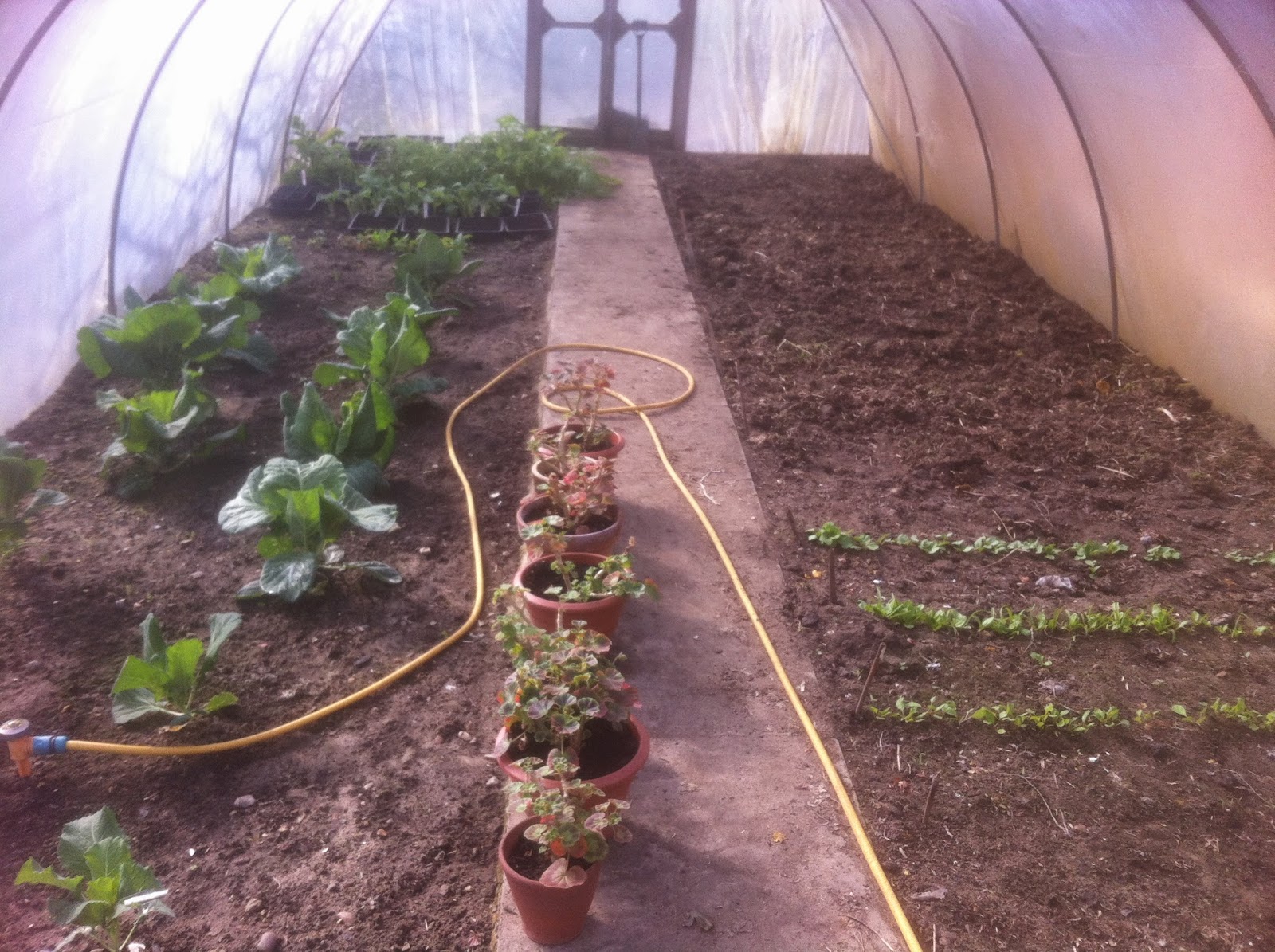Last year was a disaster on a number of counts and I got very disillusioned with the whole smallholding/gardening/better life/blogging scenario. Farmers markets were tried and not a success, farmgate sales weren't any better, so I basically gave up. So much so that we have had no winter veg this this year at all, apart from potatoes and onions and a few carrots. Hubby has not been pleased to have been buying veg all winter.
Anyway that was last year. I'm pleased to say things are back to normal again now, probably better actually. I have renewed vigour and enthusiasm and the garden is looking all the better for it. This is because I am having to follow a gluten free diet; that change has been overwhelming for me in terms of the amount of energy I have, the enthusiasm and willingness to get stuck in more than I think I've ever had. Its fab!
So onwards and upwards. I've got lots of ideas of things I want to change/improve/do on the smallholding so I hope you'll stick with me as I go through them. Please feel free to comment on anything you feel you need to - I always look forward to reading your comments.
A few photos to see how things have changed/improved etc -
The polytunnel at the moment - Spring cabbages and overwintered salads on the left hand side. More salads, radishes etc on the right. Rest of right hand side bed is first early potatoes, put in a fortnight ago
Overwintered salads, and seed trays full of flowers, leeks etc
Peas under the cloches, the rest dug over and muck applied. Only a small (weed-infested) piece left to dig over (top left)
Looking back towards the house. Fabric fleece over some more spring cabbages, that aren't doing very well and so will get pulled up. Canes are in for my Carnations
Garlic growing very well, despite only going in a fortnight ago
The 'new' veg patch. Daffodils in the foreground
The patch being cultivated. All poultry houses are now in this bit - two chicken houses (one currently empty and waiting for the new arrivals, hopefully at the end of the month) and one duck hut
Hubby's cultivating equipment!






























